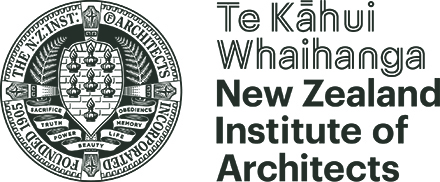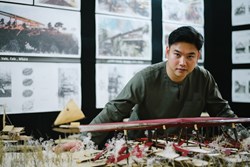Erica Morris from Te Kura Matatini ki Otago — Otago Polytechnic, School of Architecture is a finalist for her project 'Where People Go'.
Judges citation
A strong personal connection to Roxburgh comes across clearly in this project, featuring strong imagery and visual presentation in a compelling re-imagining of a Central Otago town centre.
Project description
This project dwells on place identity within a small rural town, with a particular role in memory. At its core, the project investigates how the use of architecture can tell a story about how the built environment interacts with the historic land. While constantly putting into perspective what has already been done to create a critical analysis of the region's identity, drawn from the traces of the past.
A fire destroyed the Roxburgh Town Hall and Entertainment Centre, including its 128-year-old cinema, on Scotland Street early 2025. I was drawn to this site not just because of the building itself, but because of the emotional weight it carried within the community. The community's reaction, expressed through news articles and community platforms, revealed a deep sense of grief and collective loss.
The final architectural response weaves together the themes of place and memory into a design that restores communal gathering, reinforces community identity, and reimagines the former cinema site as a vibrant space for future generations.
At the heart of the masterplan is the tower marker, oriented to frame views toward Roxburgh's landmarks and reassert a central gathering point. Inspired by these former structures circulation, spatial organisation, and materiality, the project activates memory in a contemporary architectural language. The site is anchored by three primary structures: the marker, the hub, and the pavilion, each supporting a range of uses from daily interaction to events, ensuring adaptability to Roxburgh's evolving needs.
Through this project, I hope to highlight how important it is designing rural architecture specific to its site and context. 'Where People Go' positions architecture as a medium for storytelling, where the past informs the present, and collective memory is transformed into spatial experience.








